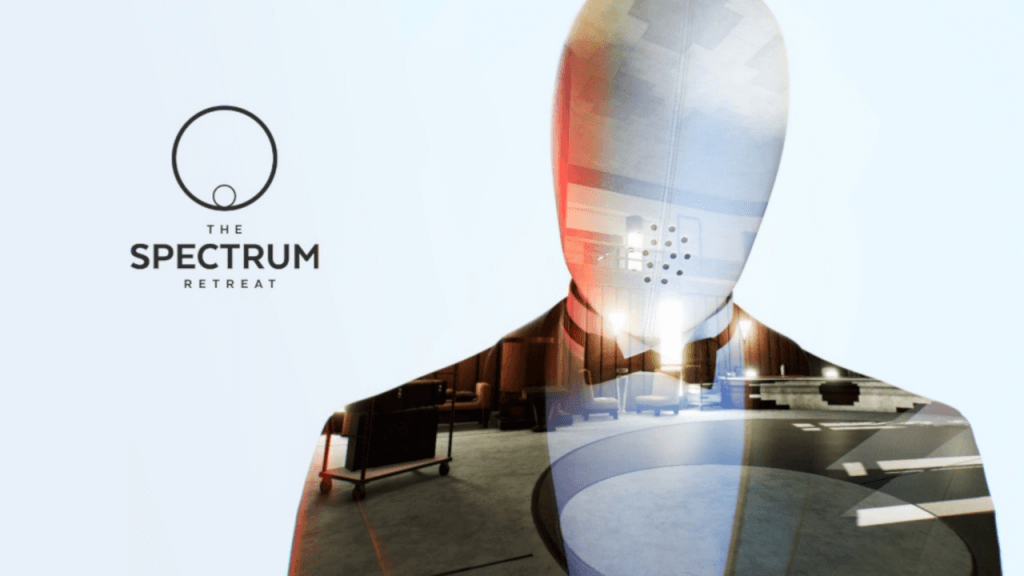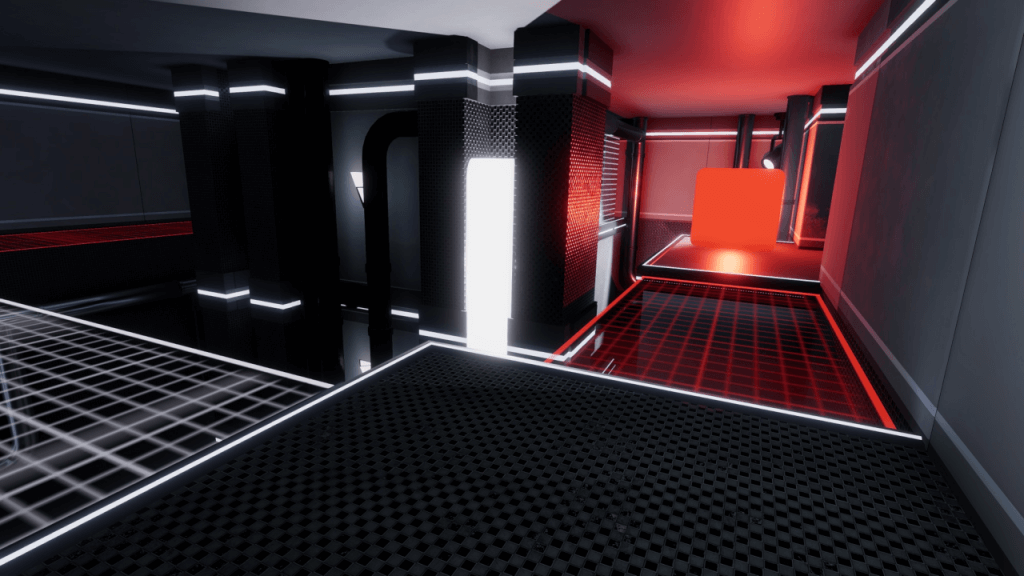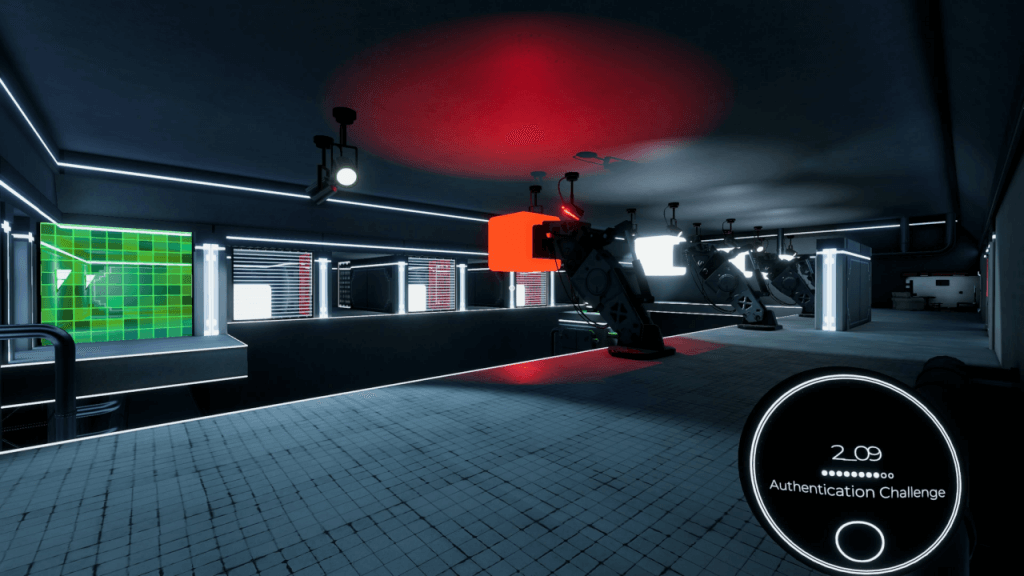I tend to gravitate to games like this: psychological experiences with stylized narrative delivery. Before I saw much of the gameplay, The Spectrum Retreat had a palpable air to it. Going into the review, I was unaware that the game relied on solving puzzles. However, in retrospect, I had no idea that the puzzle aspect of the game would be one of my most preferred.
The Spectrum Retreat Story Begins Well
You awaken to a knocking at your door. You open the door, and an automaton in a full suit and bow tie greets you. After a brief interlude, he invites you downstairs to breakfast, his automated personality contradicting the cold, faceless presentation his form brings. It’s this conflicting presentation that accompanies the game’s presentation from beginning to end.
The Spectrum Retreat walkthrough
You receive a phone call as you eat your breakfast. The woman on the other end is Cooper, and she details in vague terms that you must keep your phone hidden for fear of getting caught with it. It’s here where the game really begins. It’s up to you, with Cooper’s help, to recover your lost memories and escape the yet-unknown dangers of the The Spectrum Retreat.
Tensions are high early on in The Spectrum Retreat. Vividly detailed rooms give an eerie, clean sense of emptiness and unease. There are even points where the polite automatons strike fear while fulfilling their tasks. The pace is pitch perfect. In the beginning, nothing stands in the way of what feels like a beautiful, glorious slow burn.
Hints of your old life appear randomly in the repetitive hallways in the form of blurred images on the wall. You search around for what’s different to find your way into specific rooms locked behind a passcode. Once you find the code, you step into a series of puzzles, where you manipulate colored blocks to open up new sections or walk through colored walls.
Puzzles soon overshadow the narrative
Early on, the puzzles have a complicated simplicity to them. They don’t keep you from progressing, but they don’t pass by without some thought. It’s the first couple floors that benefit from this, as hints of your past–your family, work, and life–start to paint a picture of who you were.
The Spectrum Retreat interview
It’s in the second half of the game where pace becomes a problem. Puzzles become more complicated and take up more time, which means that there’s less of an emphasis on the circumstances behind why you’re in the hotel in the first place. What complicates this further is how the narrative itself is delivered and what information is being presented.
At first, the memory fragments revolve around you, your wife, and your child. Right around the third floor, information about the political climate starts to trickle in–eerily reminiscent of present times–which dilutes the flow greatly. I avoid spoilers here, but the devil of it is in the detail.
The Spectrum Retreat’s puzzle rooms are a delight
Above all else, the thing that The Spectrum Retreat does absolutely right is how it delivers the puzzle rooms. The concepts are simple: hold or apply the correct color to help you get past an obstacle. There’s no manipulation of the world. It’s just navigation. Difficulty between puzzles is very organic as well, requesting a little bit more prowess and investigation with each new puzzle as you learn more; other puzzle developers aren’t so Johnny on the spot about this.
New techniques refresh each floor as well, with each new thing keeping the old formula feeling new. Nothing overstays its welcome in this regard. Unfortunately, as the puzzles become more complicated and bigger, the narrative begins to grow thin. Little scenes hidden within the puzzles do add to the overall narrative in their own way. Regardless, focus shifts heavily in favor of the puzzles. This holds especially true for the final, lengthy puzzle.
The Spectrum Retreat’s warm welcome soon fizzles out
The emotional drive at the beginning of the game, those hints of something touching on the edge of perception, give way as the puzzles become more elongated. By the end, the picture of what took place before your time at The Spectrum Retreat is as clear as it is placid.
An intriguing, almost touching story ultimately falls into place, and the orchestra score that accompanies the game is a melancholy delight to the greater whole. Pacing, ultimately, is The Spectrum Retreat’s undoing. What should be a clever hook is tamed by the game’s challenging, yet accessible, puzzle rooms and how the details are delivered within them.
Don’t get me wrong: The Spectrum Retreat is a puzzler that will welcome and challenge everyone. The puzzles are engaging without being aggressively difficult. It’s a strength to what I feel The Spectrum Retreat was trying to do. The devil is in the details, and how those details were delivered diminished the overall experience.
The Spectrum Retreat review code provided by the publisher.


